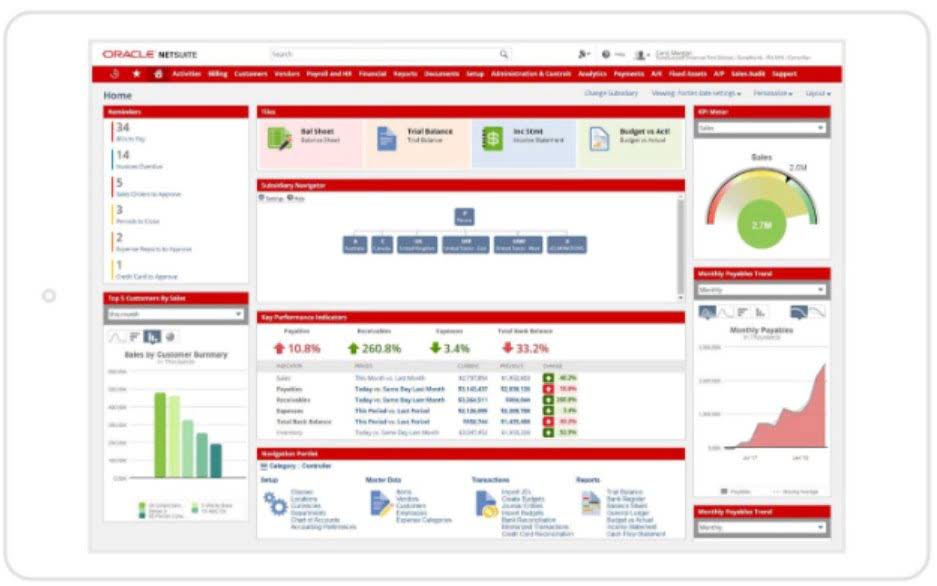
These online updates also mean they are better suited to multi-currency transactions, with rates automatically updated and able to be far more accurate than traditional software. Millions of companies use Square to take payments, manage staff, and conduct business in-store and online. You’ll also want to develop a change management strategy to help everyone on your team adjust to the migration from on-premises software to the cloud.
Why You Can Trust Forbes Advisor Small Business
Using a cloud-based accounting program makes it easier for you to collaborate with your accountant. The cloud makes it easier to generate reports that your accountant might need from you. You can also give your accountant access to the software, so they can access your numbers anytime they need to. With an online accounting program, you also have control over how much access to financial information can give to an employee.
Difference between Cloud Accounting and Traditional Accounting

Here’s a breakdown of the most common accounting software for small businesses. It typically leads to increased productivity and a reduction in hardware, labor, and maintenance costs. The financial impacts of cloud solutions are undeniable and worth consideration. Personalized dashboards that give each user an at-a-glance view of their most important metrics. Automated updates that bring in your most recent accounting information. The ability to add your own branding and company-specific terminology.
Effective Data Analytics Starts With an Effective Data Strategy

That includes the chart of accounts, invoices, bills, contacts and fixed assets. We recommend working with an accountant or bookkeeper, preferably one with Xero experience, when you make the move to Xero online accounting software. Cloud accounting software takes this seriously with strong safety cloud accounting features. Businesses have quickly picked up on using cloud accounting through tools like SAP and QuickBooks. This way is cheaper and requires less work than old-school accounting. Examples include NetSuite ERP and Zoho Books, showing the variety of options available for different business needs.
- It allows users to easily create invoices, manage projects, track expenses, track time, track loans and file taxes.
- We focused on five distinct categories using 25 separate metrics to arrive at our ratings for the best providers.
- Given the major advantages of cloud accounting and its lower upfront costs, many newer companies adopt a cloud accounting solution from the start.
- All essential information is accessible to small business owners and their finance staff from anywhere, facilitating cooperation and streamlining financial reporting.
With your accounting software and data stored online in the cloud, you can access your up-to-date accounts anywhere there’s an internet connection. Your Xero data is backed up regularly and protected with multiple layers of security. Cloud accounting shines by working well with different business areas. It makes things easier by linking payroll processing with cloud accounting.
This means you can get to your financial data anytime, anywhere with an internet device. Transitioning to a cloud-based finance system may seem daunting, but the benefits far outweigh the challenges. While the implementation process shares similarities with traditional on-premise setups, the advantages of cloud-based solutions are exponential.
- We reviewed several cloud accounting software providers using a detailed methodology to help you find the eight best payroll services for small businesses.
- Security is one of the biggest concerns voiced about cloud computing.
- QuickBooks is an accounting software package designed for small and medium-sized businesses.
- Compare features, pricing, and expert reviews for your business software needs – all in one place.
- Experts predict cloud accounting will grow by 20% each year, showing its crucial part in today’s digital world.
Saving Money
Whilst the above 9 reasons clearly spell out the benefits of cloud computing for small businesses, moving to the cloud isn’t an entirely selfish act. They give clients the option of undertaking a systems review so that owners and their teams look at areas which are a drain on time. They aim to cut out manual intervention where possible, including the use of spreadsheets. Instead, you can use expense capturing software, tailored reports either within QBO or KPI apps, or other specialist add-ons such as those dealing with stock. Backing up important documents on a separate hard drive is always important, whether you’re using cloud computing or not.
Accessibility and Flexibility:

You need office equipment for every person who would use the software, an IT staff to maintain the office equipment and expensive software installed on every computer. Very few 3rd party vendors will integrate with legacy software often opting to sunset integrations that are legacy based. Eventually, as the software grows further out of date, the provider will no longer support the version and require an upgrade.


